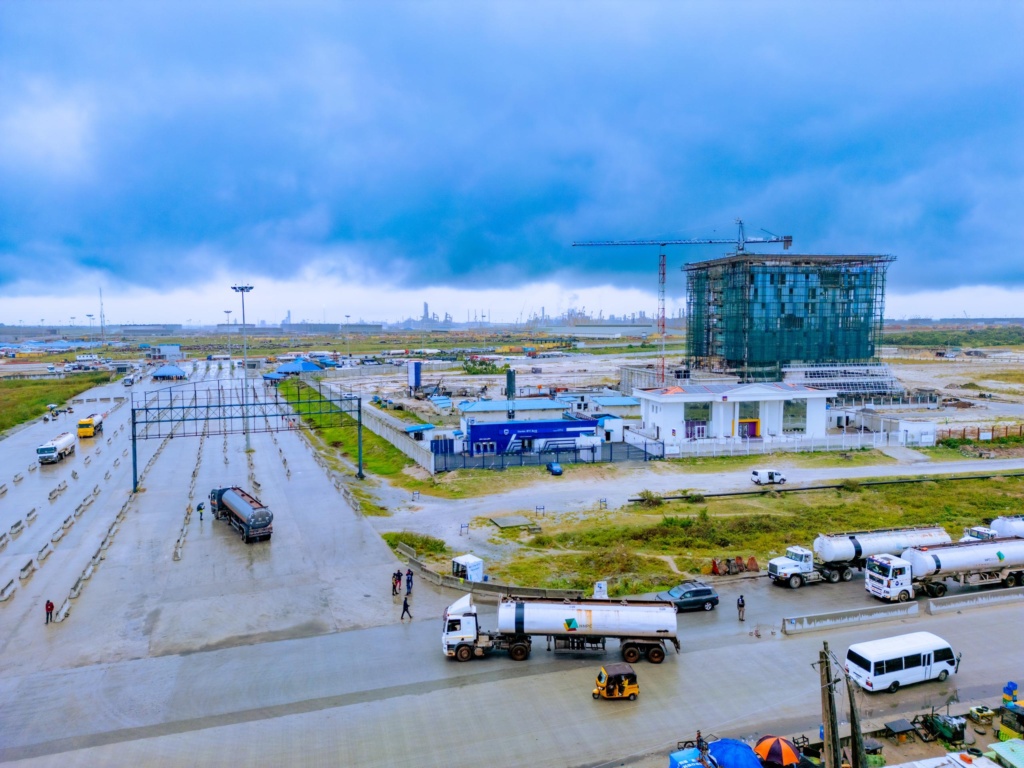Early Monday norning, the NNPC released estimated prices of petrol obtained from the Dangote Refinery in its retail stations across the country, stressing that in line with the provisions of the Petroleum Industry Act (PIA), petrol prices are not set by government, but negotiated directly between parties.
“The NNPC can confirm that it is paying Dangote Refinery in USD for September 2024 PMS offtake, as Naira transactions will only commence on October 1, 2024.
“The NNPC assures that if the quoted pricing is disputed, it will be grateful for any discount from the Dangote Refinery, which will be passed on 100 per cent to the general public.
In the attached document, the NNPC stated that fuel from the Dangote refinery will sell for N950.22 per litre in Lagos; N960.22 in Oyo; N980.22 in Rivers; N992.22 in Abuja; N999.22 in in Kaduna; N999.22 in Kano; N999.22 in Sokoto and N1,019 in Borno, based on the September pricing template.
A breakdown indicated that the final price from the Dangote refinery was N898.78, according to the statement, while distribution in Lagos is N15 per litre, inspection fee is N0.97, NMDPRA fee is N8.99, with an expected margin of N26.48.
This is coming just as the NNPC has assured Nigerians that the lingering petrol scarcity and the long queues at filling stations will disappear in the next few days with the loading of refined petroleum products which commenced at the Dangote Refinery in Lagos on Sunday.
The national oil company also stressed that the pump price of petrol from the refinery would not be fixed by either the NNPC or Dangote Refinery, saying it would henceforth be purely determined by market forces.
Speaking during an interactive session in Lagos, at the weekend, the Executive Vice President, Downstream, NNPC, Mr. Dapo Olusegun, also dispelled the insinuation that the national oil company had been frustrating the take-off of the 650,000 barrels per day refinery which is owned by Africa’s richest man, Dangote.
Commenting further on the distribution of petrol productions, Olusegun said: “There is a process for getting premium motor spirit from either the gantry at Dangote Refinery or to the vessels and there is a process of taking it from there to the pump. So, as we have started loading products, definitely, in some places, you might get fuel to buy at the pump the same day.
“For example, if a truck loads at Dangote Refinery and it is going to a filling station at Epe in Lagos, you will probably get the product same day. But if is going all the way to Kano, you won’t expect to get it that quickly.
“And if it going on the vessel to Calabar, before it gets to the trucks, the supply chain continues. So, it is not impossible to get to the filling station the same day after loading, but that is limited to the filling stations that are close to the refinery.”
Olusegun pointed out that there was no reason why the NNPC would have frustrated the take-off of the privately owned refinery, saying commenters keep forgetting that the NNPC has a stake of 7.25 per cent in the asset.
“Now it wouldn’t make sense for a shareholder to seek to frustrate a company that it has equity participation in. I can tell you that the NNPC has not at any time done anything to frustrate Dangote Refinery. The reverse is the case. NNPC has gone out of its way to support Dangote Refinery, which is what we expect a shareholder to do.
“So, when you talk about delaying Dangote crude cargoes, all of these are business transactions. Some terms and conditions guide every type of transaction and the trade of crude oil and the trade of refined products is a global business.
“The terms and conditions are global terms and conditions and so there are conditions to be met before a cargo of crude can be released. If those conditions are not met, then it’s just normal business to wait until those conditions are met before you can release the cargo. So, that’s basically what it is. So it’s not anything. It’s not anything personal, we’re running a business and Dangote is running a business.
“All of the marketers and all companies are running businesses. You have terms and conditions that we all sign off to.
“It’s just us keeping to the terms and conditions of our business transactions. I can tell you, there’s nothing unfair going on. Everything that’s going on is according to the terms and conditions signed by both parties, and that is the way business should be done,” he explained.
Olusegun, emphasised that with the Petroleum Industry Act (PIA), the national oil company is now a going concern and no longer a corporation that relies on the government for support.
“Today, if the NNPC starts making losses and cannot meet its obligations, the government cannot bail it out, because it will be illegal for the government to do that as it is against the law,” he said.
Responding to a question on the expected amount the NNPC would fix the pump price of petrol to be lifted from the Dangote Refinery, the executive vice president said: “Let’s imagine companies like Total, Shell, NIPCO, can we say that they are the ones to fix the price of petrol? Absolutely no.
“The same thing applies to NNPC. The NNPC is just like any of these businesses. The only difference is that the shares of NNPC are entirely owned by organs of government – Ministry of Finance Incorporated (MOFI) and Ministry of Petroleum Incorporated. That’s the only thing – the shareholders of NNPC.

